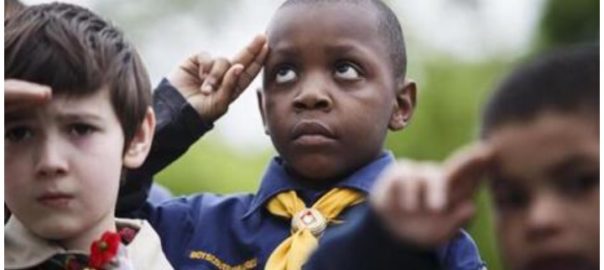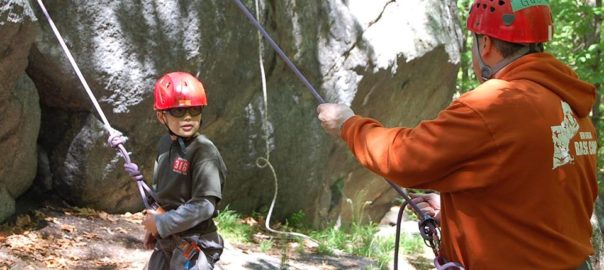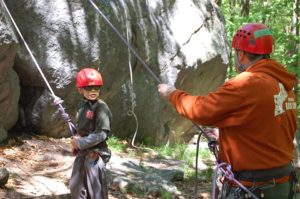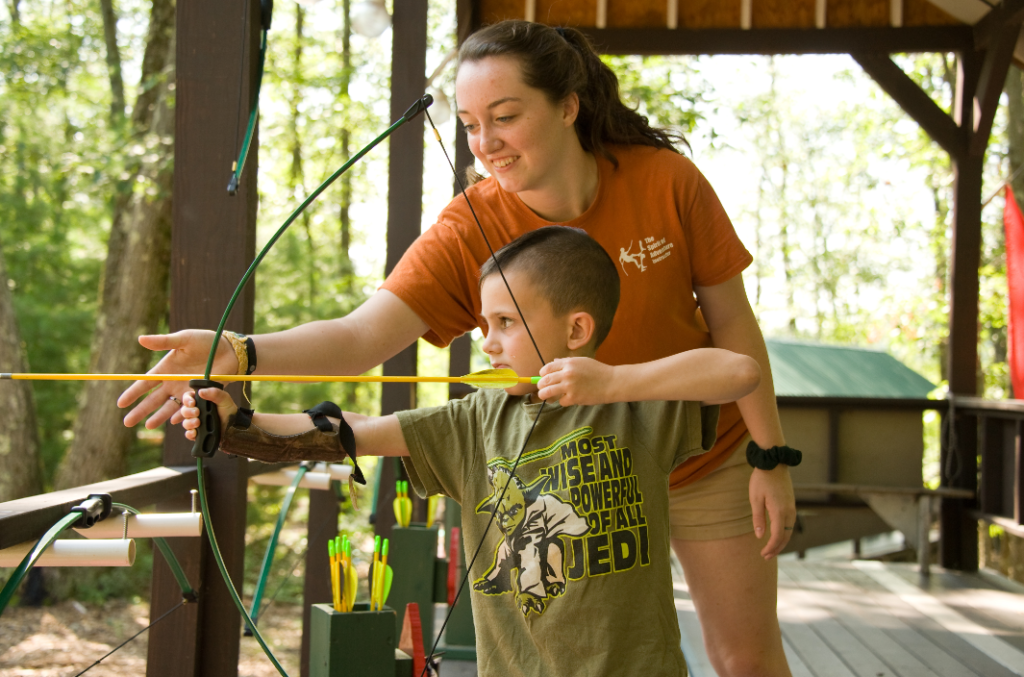New England Base Camp was named by Globe Magazine as one of 15 things to do with your kids over April vacation. For full article, click HERE.
All posts by Communications
Female Eagle Scouts in Boston Globe
Among the first female Eagle Scouts, Kavita of Cambridge Troop 56 were profiled in today’s Boston Globe. Read the full article here: First female Eagle Scouts are about to take flight
Merit Badge Counselor Changes
As was announced on October 7th, effective Monday, February 1, the position of Merit Badge Counselor will no longer be listed on Unit Rosters. The connections between the Merit Badge Counselor and the Scout will also be removed. Merit Badge Counselors can continue to work with Scouts while we continue to enter those positions into the National Database for sync to Scoutbook.
Anyone with “Edit Advancement” can add the completed requirements to a Scout’s advancement. The ability to “Edit Advancement” can be added by a Unit Admin in the Connections Manager.
If you have Merit Badge Counselors listed in Scoutbook, and have not yet sent that list to Marian McQuaid ([email protected]), you need to do so immediately. That list will not be available to you on Monday February 1.
You can also send a homemade list. Please allow for up to 2 weeks to see the changes made.

Scouting in Today’s Society
Utilizing our Diversity Task Force
Submitted by Chuck Eaton, Scout Executive
In the past nine months, we assembled a diversity and inclusion task force to review, and better understand Scouting’s relationship toward our diverse, melting pot /pluralist society. Our mission was to develop a roadmap that would ultimately unlock the program of Scouting for all families that want to raise children of character. It’s part of our strategic plan which is still under review – but diversity road map was met with enthusiasm and broad support.

- A Scout is friendly. A Scout is a friend to all. He is a brother to other Scouts. He offers his friendship to people of all races and nations, and respects them even if their beliefs and customs are different from his own.


Volunteering at Base Camp
Use your Scouting experience to make a difference!
Volunteering is not only rewarding for you, it can change a child’s life.
The New England Base Camps and the 7 satellite programs locations provide outdoor education and character education opportunities. The flagship location (Blue Hills – just outside Boston) provides year round programs for families and school age children each weekend.
 You might be a Scouter whose kids are in college, in their 20s and Scouting was a huge part of the way you raised them. Working with all those kids and helping them grow and develop through Scouting, helped you become a practical expert at youth development. You can give the troop over to the next generation, serve on the committee, help out from time to time, and maybe teach a couple merit badges, but you might be looking for a more exciting Scouting opportunity.
You might be a Scouter whose kids are in college, in their 20s and Scouting was a huge part of the way you raised them. Working with all those kids and helping them grow and develop through Scouting, helped you become a practical expert at youth development. You can give the troop over to the next generation, serve on the committee, help out from time to time, and maybe teach a couple merit badges, but you might be looking for a more exciting Scouting opportunity.
Now, through our new service model the Base Camps and the satellites, you can volunteer a Saturday morning or an afternoon and work with kids in the outdoors. Thus putting all that great experience to work for another generation.
You might be an older teens looking for hands on experience in teaching, coaching or youth development. The volunteer hours are often recognized by school districts and other organizations to fulfill community service requirements. Young adults will be trained and often work along-side educational or recreation professionals.
It can be as simple as an afternoon a month. Teaching basic camping skills to Cubs and their parents. Teaching Totin’ chit to Scouts. Or, you can use it as a pathway to certifications in archery, shooting sports, rock climbing, ice climbing, or lifeguarding.
 The short-term volunteer roles provide support and expertise. As a weekend program volunteer your role will be to impart skills that you’ve acquired to children. The program is so robust that virtually every life skill is a part of the curriculum, so even if you’ve never camped, or can’t navigate by the stars, it’s OK! We still need your unique skills so kids can learn about computers, citizenship, gardening and hundreds of other activities.
The short-term volunteer roles provide support and expertise. As a weekend program volunteer your role will be to impart skills that you’ve acquired to children. The program is so robust that virtually every life skill is a part of the curriculum, so even if you’ve never camped, or can’t navigate by the stars, it’s OK! We still need your unique skills so kids can learn about computers, citizenship, gardening and hundreds of other activities.
Check out our VolunteerMatch listing, and contact Zack Shepherd at [email protected] if you are interested in volunteering your time to make a difference in Scouting!
